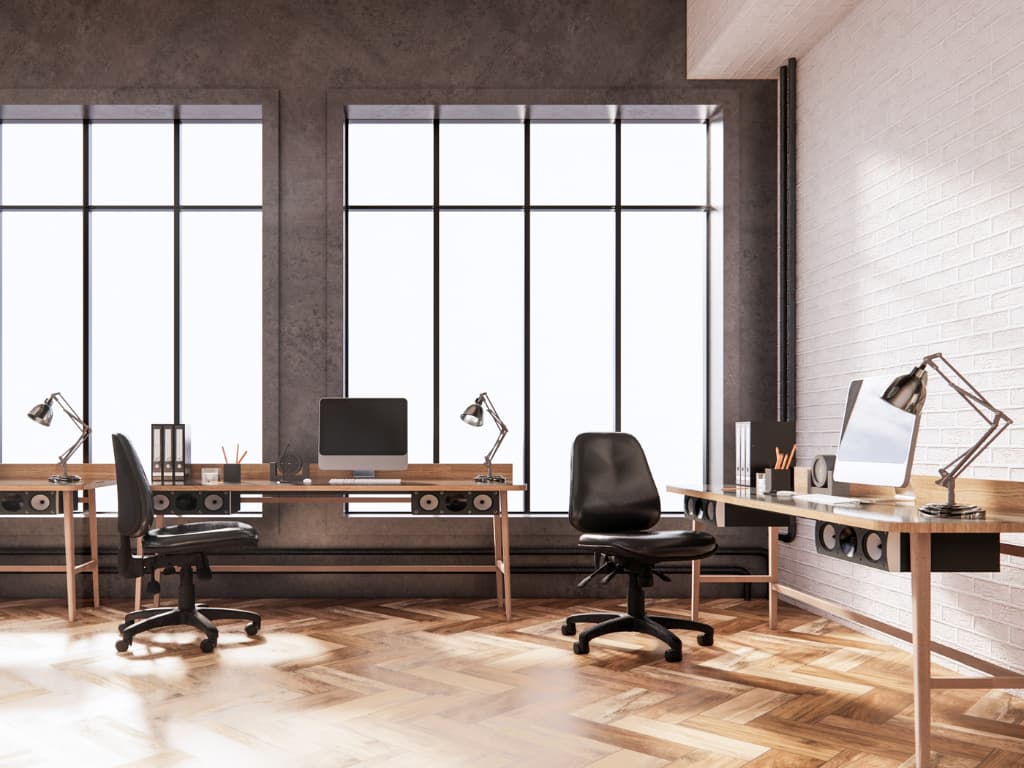In the wake of Covid-19, amidst talent shortages and rising inflation as well as the preference for hybrid working arrangements, many of the businesses we work with are seeking the best way to remain profitable and ensure operations are efficient.
As such, some of our clients have been proactive in downsizing their office space in a bid to attract new talent, improve agility, sustainability and collaboration and save on costs.
The office vacancy rate in Australia, as of January 2023, now sits at 13.3%, the highest rate since the mid-1990s and an increase of 0.4 per cent since July last year. So do large office spaces make sense anymore?
CBRE suggest that 52% of businesses in the US plan to reduce office space over the next couple of years as a way to refresh, renew and modernise. So how exactly can office downsizing be beneficial for a business? We take a look.
Cost savings
One of the most obvious but significant benefits of downsizing a company office is expense reduction. Renting or owning office space can be a considerable expense and reducing the space you need can result in substantial cost savings. These savings can be reinvested in the business or passed on to shareholders.
Macquarie Group reported major cost savings after reducing their office space by 30% and allowing for remote and hybrid working models. Cost savings can also provide you with the opportunity to ‘’spruce-up’’ your space, get rid of outdated images and perhaps old memorabilia that has no connection to the current employees.
Increased agility
Smaller office spaces can also make a business more agile. With fewer employees in the office, it’s easier to make changes quickly and respond to new challenges. This can be particularly beneficial in industries like financial services, where market conditions can change rapidly.
Commonwealth Bank conducted a study on the impact of office design on productivity and found that providing flexible workspaces, such as hot-desking and shared meeting rooms, increased job satisfaction and staff retention. “Our staff can design their day in a way they haven’t been able to before; a dynamic and vibrant workspace created a sense of energy, interaction and cohesion”, says Jennifer Saiz, Executive General Manager, Group Property and Security at CommBank.
Improved collaboration
Downsizing a company office can also improve collaboration among employees. When teams work in a smaller space, they are more likely to interact, innovate and problem-solve more effectively. In a recent blog from Westpac, they highlighted that downsizing their office spaces led to increased productivity; “Gone are the days of office spaces with individual standalone workstations piled high with paper or adorned with family photos. The future office will be a place to brainstorm or plan work, where people collaborate, and the deep, focused work is carried out at home or in other quiet locations dedicated to doing so.”
Some businesses have shared with us that a smaller space makes people feel more connected to the team and they are motivated by each other’s energy, delivering more buzz and excitement, and an ability to celebrate the wins more readily. One HR manager even noted one of the benefits was that the team was not so spread out – it no longer felt like a ‘ghost town’ and there was a much better overall atmosphere.
Environmental benefits
Reducing the size of a company office can also have environmental benefits. AMP reported that by downsizing its office space, it was able to reduce its carbon footprint and save costs on energy bills. For this reason, office downsizing is worth considering for companies looking to improve sustainability and provide a more eco-friendly workplace. This is a key consideration amongst candidates from the Y and Z generations when considering a role.
Attracting new talent
Finally, downsizing a company office can make a business more attractive to new talent. Many employees today value flexibility and the ability to work remotely, therefore avoiding the rigidity of traditional offices is growing in popularity. By offering smaller office spaces, companies can demonstrate that they are forward-thinking and responsive to changing employee preferences.
The Future of Work report from ANZ noted that downsizing office spaces and accommodating blended working modules improved staff morale as it reduced workspace density and created an enhanced sense of inclusion. By proactively addressing your office design to be more aesthetically pleasing, cohesive and welcoming, staff can work in a way that suits them, thus making your workplace more attractive.
Before transitioning to an office that is more space-effective, it is important to ensure adequate facilities are still available. Considerations should be made into workplace culture, processes and technology to ensure the switch is smooth.
The best workplaces are still about people, not the space itself, so take the time to speak to your staff, get their input and make informed decisions that consider how they can work best.
Call our recruitment specialists today to see how we can help you build an agile, collaborative team.


